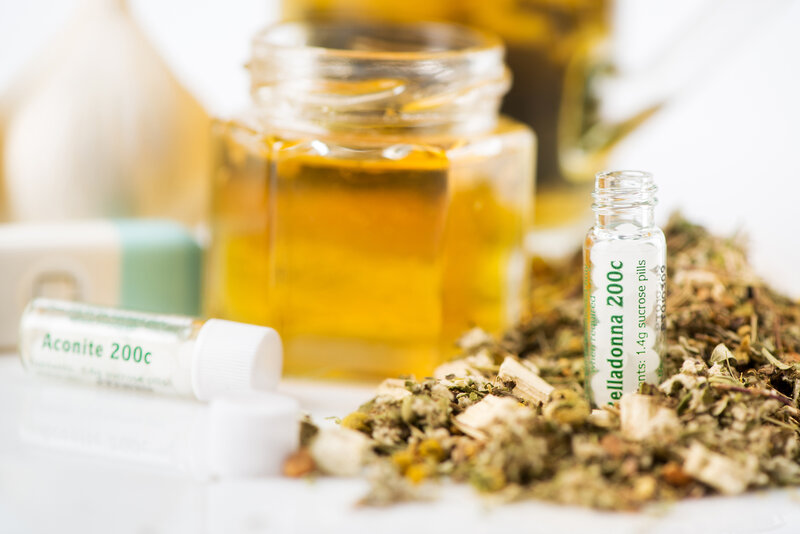
Homeopathic Remedies For Common Cold and Flu Symptoms
Posted by Maggie Hall on 2023-01-18
If you are looking for homeopathic remedies for common cold and flu symptoms, you are in the right place. Here you will find an in-depth list of some of the best products on the market. These products contain a variety of ingredients, including Oscillococcinum, Mercurius, and Gelsemium, among others. You can be sure that if you take one of these supplements, you'll be on the road to recovery in no time.
Pulsatilla 30C
Pulsatilla is a homeopathic remedy used to treat cold and flu symptoms. The active ingredient in pulsatilla is anemonin, which shows activity against certain fungi and bacteria.
Pulsatilla is a plant that grows in meadows and is native to Europe and North America. It is thought to help relieve pain and calm nerves.
Colds are viral infections of the nasal passage. They are caused by viruses, which can enter the body through the nose or the mouth. Some common symptoms include cough, fever, headache, nausea, and sore throat. If left untreated, the infection can progress to pneumonia or acute bronchitis.
Oscillococcinum
Oscillococcinum is a homeopathic remedy for common cold and flu symptoms that relieves fever, chills, body aches, and headaches. It is prepared by succussion and is made from a duck liver extract. The formulation contains a sugar content of 1 gram per dose.
A small number of studies have found that Oscillococcinum can reduce the length of time a person has flu symptoms. However, further research is needed to determine the magnitude of its effect.
An observational study involving 73 people showed that taking Oscillococcinum reduced the duration of influenza by about seven hours on average. But this effect was not consistent with a clinically significant benefit.
Gelsemium
If you are feeling ill, there are several homeopathic remedies for common cold and flu symptoms available. They can help you get better faster and strengthen your immune system. However, they should not be used as a substitute for medical care. Always consult with a doctor before starting treatment.
Common symptoms of the flu include fever, cough, chills, fatigue, aching muscles, sore throat, headache, watery nose, body aches, and nausea. Symptoms usually start to improve after a few days. The infection may also cause inflammation in the airways, which can lead to acute bronchitis and asthma. It's important to seek conventional medical help, especially if you experience serious complications.
Mercurius
A good homeopathic remedy for common cold and flu symptoms is Mercurius. It is a common treatment for colds, but it is also used for infections such as chickenpox.
Mercurius can be taken in liquid or tablet form. The preparation contains one part mercury diluted with nine parts water. These are usually taken in teaspoon doses. This treatment is a safe and effective way of treating a cold. However, people should check with their doctor before starting any medication.
Homeopathic medicines contain natural substances. They are not a substitute for medical advice but may help shorten the duration of a cold. In addition, they have few side effects.
Sambucol
If you're in the market for a homeopathic remedy for common cold and flu symptoms, then Sambucol is worth a look. It is a well-designed and tested product, and its main claim to fame is that it can shorten the flu by up to a week.
Sambucol is actually a combination of various ingredients, including a black elderberry extract. The benefits of using Sambucol include temporary relief from coughing, a boosted immune system, and a reduction in the duration of the illness. These benefits are achieved by boosting the production of white blood cells and cytokines, which are important in fighting infection.
North American ginseng
Ginseng is a natural plant that is used to treat fatigue and increase energy. It also has healing properties. Taking ginseng extracts can help reduce the number and severity of colds. However, it is unknown whether ginseng is effective at reducing the duration of a cold.
A study by Gerald N. Predy, director of the regional public health agency in Edmonton, Canada, evaluated the effectiveness of ginseng in the prevention of colds. The results were published in the October 2005 Canadian Medical Association Journal issue.
There is limited evidence to support the use of North American ginseng extracts for the treatment of common colds. Two trials reported a reduction in the number of ARIs (acute respiratory illnesses), including colds.